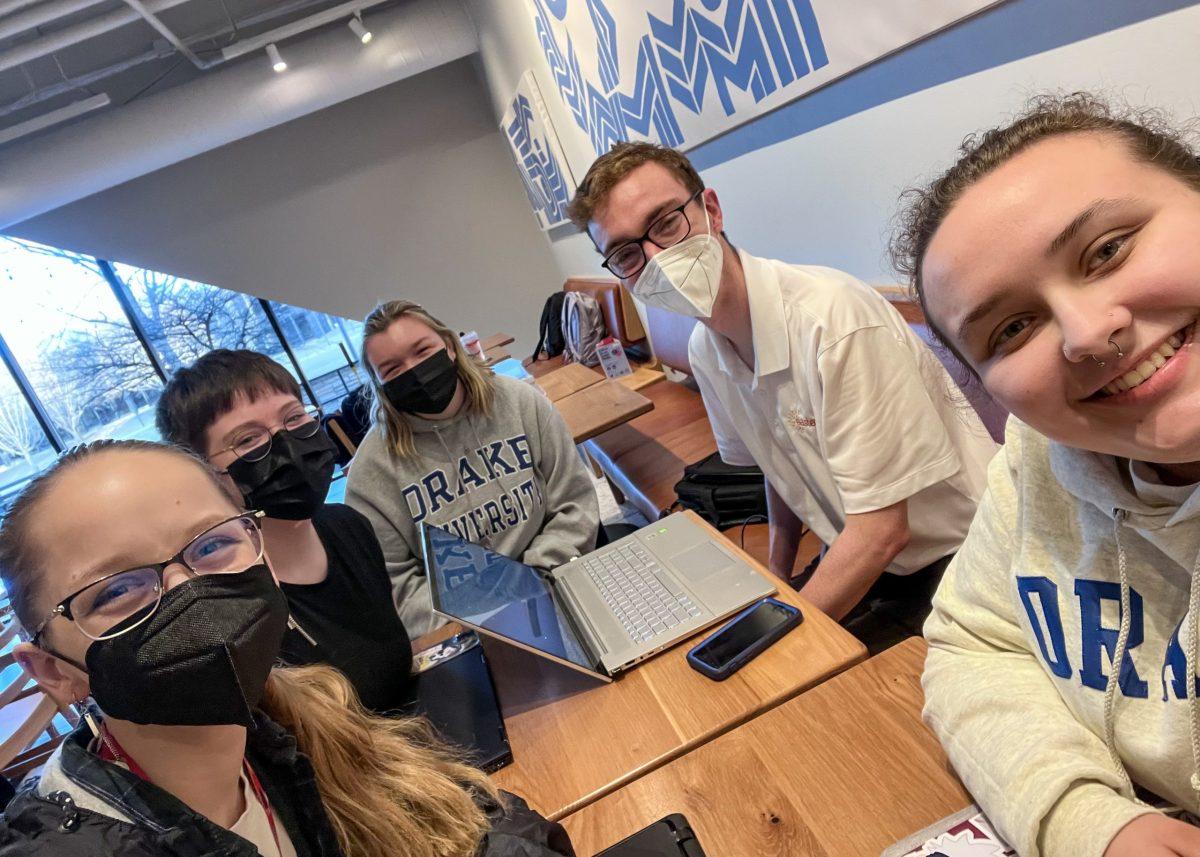Drake University’s ADA Task Force is driven to build a more inclusive campus for everyone, though particularly for those with disabilities. As they educate the campus community and make collective, conscious decisions about disability inclusion, the student group hasn’t always had it easy.
Projects that increase accessibility can be high in capital, which makes them heavy in logistics and expense. Matthew Williams, the leader of the task force, said the administration has been responsive and acknowledges the need for change.
According to Michelle Laughlin, Director of Access and Success, Drake has approximately 300 students with disabilities who have provided documentation and are registered with their office.
“If you’re part of an institutional organization that is very accessible to accommodate people’s needs, you’re going to feel even more valued within the community,” Williams said. “I think if we continue to [take] those steps forward, we’re going to continue to be a welcoming campus for people.”
Named after Sen. Tom Harkin’s signature legislation, the Americans with Disabilities Act, the group consists of six students who are also executive board members of the Residence Hall Association (RHA). They meet every Friday to brainstorm future projects and initiatives to bring light to the administration.
The RHA supports the task force in marketing events and provides a group of students to brainstorm new project ideas with, as well as connections to campus leadership.
“Last April, we made a presentation to leadership of facilities and residence life to present ideas for how we can make our residence hall, specifically, more accessible,” Williams said. “The administration is very responsive to these ideas and so it was a very productive discussion.”
Take Morehouse Hall, an upper-class residence hall, for example. The building meets accessibility requirements as it has been “grandfathered in” to standards set prior to the passing of the ADA, according to Williams.
However, with the lack of an elevator in the hall, students using wheelchairs would have difficulty navigating themselves between floors. Therefore, the group is working to rectify the issue and improve resources within the building.
Kevin Moran, executive director of facilities, said in an email that in order to maintain the historic value of certain buildings on campus, adding an elevator to them would likely take place when they undergo renovation to ensure their architectural character will remain the same.
“Those projects are listed under deferred maintenance and as funding allows, those improvements will be completed,” Moran said. “Drake is able to accommodate accessibility with other facilities on campus.”
The group is also working to reach more people by raising awareness. The task force held a virtual panel discussion in the fall of 2020 to celebrate the 30th anniversary of the Americans with Disabilities Act.
Last fall, they hosted an event called Definition:Diversity in the Olmsted Student Center, with the aim of showing the true depth of diversity by having students share a unique fact about themselves.
“People may have invisible disabilities. You might have different identities below the surface that might not be recognized by just looking,” Williams said. “The diversity conversation is really more than what the eye can see.”
This semester, the organization is holding a campus-wide survey of students regarding which areas of campus do and do not work well from an accessibility standpoint. The survey asks students to indicate whether they’ve experienced challenges using amenities within the residence halls and the Hubbell Dining Hall.
“That way we are able to identify it from someone who might not have a disability, but they see a problem,” Williams said. “If we’re getting a lot of hits in the area, that shows me that people are recognizing it more often as people with disabilities.”
Results of the survey are not yet available because the members of the task force are in the midst of compiling the responses. They have refrained from disclosing any other specific plans that the task force are currently discussing, as the group would like to keep it private until the projects become solid.
“Accessibility on Drake’s campus ensures that everyone has the opportunity to succeed and take part in all of the wonderful things Drake has to offer. Ensuring all have the opportunity to succeed defines inclusion,” Williams said.
Williams himself has a disability, having been diagnosed with cerebral palsy. After receiving over 10 years of physical therapy, occupational therapy and speech therapy, he is able to experience his time independently at Drake University.
“I don’t have very many physical barriers in terms of things like infrastructure barriers like doors, ramps, things like that,” Williams said. “But knowing a lot of people in the disability community who do face these challenges, I have my eyes sharpened for those things.”
This story was corrected to remove a sentence stating that Morehouse does not meet the ADA rules that were revised in 2010, and additional information from Moran was added.








William Goren • May 2, 2022 at 2:30 pm
Keep up the great work Bulldogs!
Parent of a Drake 2026.